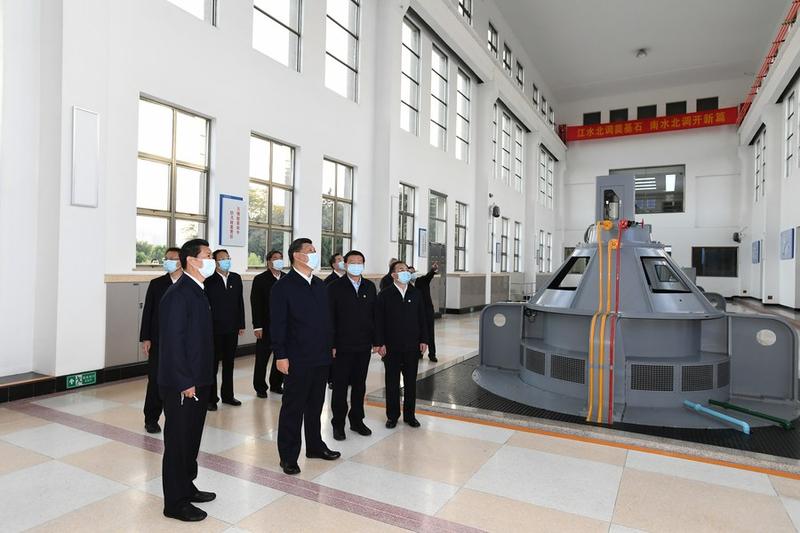


Chinese President Xi Jinping has stressed efforts to apply the new development philosophy and foster a new development pattern to advance high-quality and sustainable economic and social development.

Xi, also general secretary of the Communist Party of China (CPC) Central Committee and chairman of the Central Military Commission, made the remarks during an inspection tour in east China's Jiangsu Province from Thursday to Friday.
Xi urged Jiangsu to focus its efforts on striving to be a model of reform and innovation as well as advancing high-quality development, take the lead in promoting the country's establishment of a new development paradigm, and become a frontrunner in realizing socialist modernization.
Xi visited places including waterfront along the Yangtze River and the Grand Canal, a key water control project, and cultural heritage site during stops in Nantong and Yangzhou, where he inspected work related to the implementation of the spirit of the fifth plenary session of the 19th CPC Central Committee and coordination of regular epidemic control with economic and social development.
On Thursday afternoon, Xi visited a riverside district in the city of Nantong, where he inspected local efforts in improving the overall environment along the shoreline of the Yangtze River, as well as the enforcement of fishing ban policies.
Xi urged efforts to blaze a new trail of green development that gives priority to ecology, so as to provide powerful support for the high-quality and sustainable development of the Yangtze Economic Belt.
After learning that the dirty and messy places in the past have been turned into attractive parks, Xi said a happy life has been achieved through the hard work of all.
More prominence should be given to protect urban environment and ensure better quality of economic development and people's lives, Xi said.
Xi then went to Nantong Museum, where he watched exhibits introducing Zhang Jian, founder of the museum and a Chinese industrialist and educator in the late 19th century and early 20th century, and learned about how Zhang started businesses, developed education and initiated public welfare undertakings.
Hailing Zhang as a model of all Chinese private entrepreneurs, Xi said the museum and Zhang's former residence should be turned into a base for patriotic education, which can enhance the sense of social responsibility of private entrepreneurs and the country's youth and their confidence in the path, theory, system, and culture of socialism with Chinese characteristics.
While visiting an ecological and cultural park in Sanwan area in Yangzhou on Friday, Xi learned about environmental remediation and ecological restoration along the Grand Canal and the development of a demonstration zone of modernized shipping.
Building ecological civilization directly concerns the happiness of the people, bears significance to the growth of young people, and meets the consensus and aspiration of the broad masses of the people, he said.
While visiting the Jiangdu water control project, Xi stressed coordination of implementation of the country's South-to-North Water Diversion Project and water-saving efforts in northern China.
He also stressed guiding the development of cities and industries based on water capacities and making more efforts in water conservation.
